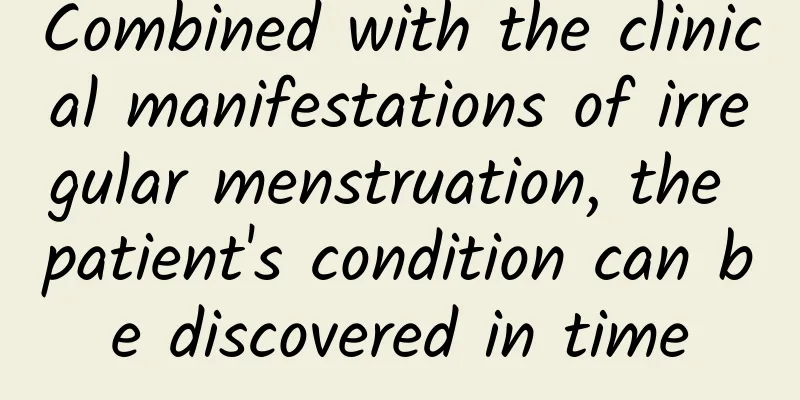What are the causes of habitual miscarriage in women? Pay attention to 4 things

|
Pregnancy is a happy thing for women, but miscarriage after pregnancy makes many women feel very distressed. Habitual miscarriage can cause infertility in women, so special caution is required. There are many reasons for habitual miscarriage, and infection factors, prethrombotic state, immune disorders, and maternal systemic diseases are all common causes. Some women often experience recurrent miscarriages after becoming pregnant. If the number of miscarriages is too high, habitual miscarriage may occur. Although the incidence of habitual miscarriage is relatively low, it will affect normal pregnancy and may even cause female infertility in severe cases. Therefore, you need to be more cautious after the disease occurs, understand the main reasons, and seek timely treatment. So, what are the causes of habitual miscarriage in women? |
<<: These 4 reasons can easily lead to habitual miscarriage in women
>>: What are the treatments for habitual miscarriage?
Recommend
Can anti-uterine inflammation tablets treat cervical erosion?
Anti-uterine inflammation tablets can be used as ...
What are the symptoms of cervicitis in women?
Female patients with early-stage cervicitis often...
Can cervical erosion be transmitted to men?
Nowadays, many women suffer from gynecological di...
What to eat for thick endometrium
What is good to eat when the endometrium is thick...
What are the common uterine fibroids? What are the symptoms of uterine fibroids?
Uterine fibroids are usually discovered through g...
A brief analysis of the clinical symptoms of hyperplastic vulvar leukoplakia
Many female friends may feel unfamiliar with the ...
What should I pay attention to after I have just had an abortion? What should I eat after I have just had an abortion?
What should I pay attention to after having an ab...
What causes uterine fibroids? What are the symptoms of uterine fibroids?
Uterine fibroids are common benign tumors of the ...
Methods of examining pelvic effusion
Pelvic effusion is a manifestation of pelvic infl...
Why do women need to have an ultrasound before an abortion? The main reasons for doing an ultrasound before an abortion are:
In life, some women do not take proper precaution...
What is the pain of pelvic inflammatory disease?
Pelvic inflammatory disease is a gynecological di...
Turmeric + black pepper for slimming and skin beautification! Say goodbye to being single on Singles Day with him
This Friday is November 11th, Singles' Day. T...
Four methods of external treatment of vulvar leukoplakia with traditional Chinese medicine
Vulvar leukoplakia is a common disease among wome...
Contraindications for medication during menstrual irregularities
Medication for irregular menstruation is generall...
Symptoms of pelvic inflammatory disease may also include systemic symptoms
Recently, there are more and more patients with p...









